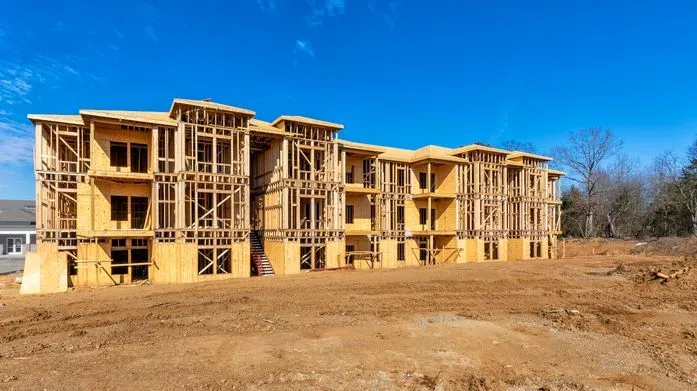Real estate crowdfunding platforms have become a popular way for everyday investors to gain exposure to real estate. This type of investment doesn’t require the capital and know-how needed to purchase entire properties, making it a potentially simpler avenue for diversifying your portfolio. These platforms allow individuals to pool their funds with other investors to back various real estate projects, from residential developments to commercial ventures. Today’s market of real estate crowdfunding platforms includes companies like Fundrise and CrowdStreet, each with their own focuses, investment requirements and fees.
You can also consider working with a financial advisor to explore additional ways to invest in real estate and other assets.
What Is Real Estate Crowdfunding?
Real estate crowdfunding is a method of raising capital for real estate projects. Individual investors contribute small amounts of money toward a common goal, enabling them to participate in real estate opportunities that might otherwise be out of reach due to high costs or exclusive access.
The process works similarly to other forms of crowdfunding, but instead of supporting a product or cause, investors are backing a tangible asset: real estate. Through online real estate crowdfunding platforms, investors can browse and choose real estate projects that align with their financial goals, whether they’re looking for short-term returns through fix-and-flip properties or long-term gains through rental income and property appreciation.
Most platforms offer two types of investments: equity-based and debt-based. With equity-based investments, investors own a share of the property and earn a portion of the rental income or profits when the property is sold. Debt-based investments involve lending money to the property developer, with returns generated through interest payments.
Real estate crowdfunding allows investors to diversify their portfolios across multiple properties and locations, reducing their reliance on any single property. But like any investment, real estate crowdfunding comes with risks, including the potential for market fluctuations, delays in project completion or loss of capital if a project underperforms.
Real Estate Crowdfunding Platforms

When choosing a real estate crowdfunding platform, consider factors such as minimum investment requirements, fees and the types of projects offered. Here are some popular real estate crowdfunding platforms to explore and compare:
Fundrise
Fundrise is one of the most well-known real estate crowdfunding platforms and is accessible to users who are over the age of 18, have a permanent U.S. residency, a valid US tax ID and file taxes in the U.S. The platform offers a range of real estate investment options, including residential and commercial properties, and provides access to diversified portfolios through its eREITs (electronic real estate investment trusts).
The minimum investment on Fundrise can be as low as $10, making it an attractive option for new investors. One downside, however, is that liquidity can be limited, as funds are intended to be a long-term investment.
RealtyMogul
While RealtyMogul offers opportunities to both unaccredited and accredited investors, certain opportunities are only available to the former. The platform has investment opportunities in both commercial and residential real estate. The platform focuses on larger, institutional-grade properties, and investors can choose from debt or equity investments. Investment minimums typically range from $25,000 to $35,000.
One unique feature of RealtyMogul is its option to invest in REITs, which provide a diversified portfolio of properties.While the opportunities can yield attractive returns, RealtyMogul may be better suited for more experienced investors with more capital or a higher risk tolerance.
CrowdStreet
CrowdStreet is a real estate crowdfunding platform that specializes in commercial real estate projects. The platform is open to accredited investors and offers direct access to a variety of real estate deals. Investors can choose from single-property offerings or invest in diversified funds. The platform also provides in-depth information about each project, allowing investors to conduct thorough due diligence before committing. The minimum investment is typically $25,000, making CrowdStreet more suitable for investors with significant capital.
PeerStreet
PeerStreet focuses on real estate debt investments, offering investors the opportunity to fund real estate loans and earn interest payments. The platform is open to accredited investors and requires a minimum investment of $1,000. PeerStreet allows investors to customize their portfolios by choosing loans that match their risk tolerance and financial goals. One advantage of PeerStreet is its relatively short investment terms, which range from one to 36 months. However, since the investments are debt-based, returns are limited to interest payments rather than property appreciation.
Groundfloor
Groundfloor is a unique platform open to accredited and non-accredited investors, with a focus on short-term real estate loans. Investors can get started with as little as $10, making it one of the most accessible platforms in the real estate crowdfunding space. While the platform’s low minimum investment is appealing, it’s important to note that the projects tend to carry higher risk, as they are typically tied to short-term renovations and sales.
Frequently Asked Questions About Real Estate Crowdfunding

What Is the Minimum Investment for Real Estate Crowdfunding?
The minimum investment varies by platform. Some platforms, like Fundrise and Groundfloor, allow investments as low as $10, while others, like RealtyMogul and CrowdStreet, may require a minimum of $25,000 or more. Investors should choose a platform that aligns with their available capital and financial goals.
Do I Need to Be an Accredited Investor to Participate?
Not all real estate crowdfunding platforms require accreditation. Platforms like Fundrise and Groundfloor are open to non-accredited investors, while others, like CrowdStreet and PeerStreet, are limited to accredited investors who meet specific income and net worth requirements.
How Long Will My Money Be Tied Up in a Crowdfunding Investment?
Investment timelines vary depending on the platform and the specific project. Some platforms, like PeerStreet, offer short-term investments with durations of one to 36 months, while others, like Fundrise, may require longer commitments of several years.
Is Real Estate Crowdfunding Safe?
As with any investment, real estate crowdfunding carries risks. While it offers the potential for attractive returns, there’s also the possibility of losing your investment if a project fails. Investors should conduct thorough research, diversify their investments and only invest funds they can afford to lose.
Bottom Line
Real estate crowdfunding platforms provide an accessible way for investors to diversify their portfolios and participate in the real estate market without owning entire properties. While this investment avenue offers lots of opportunity, don’t overlook the risks involved. If you’re interested in real estate crowdfunding as an investment opportunity, there are several platforms that can help you get started. The right one for you depends on your financial goals, risk tolerance and available capital.
Tips for Investing in Real Estate
- When investing in residential real estate, don’t forget to account for ongoing expenses associated with a property, including property taxes. SmartAsset’s property tax calculator can help you estimate how much you can expect to pay in annual property taxes based on the home’s location and its assessed value.
- A financial advisor can help you allocate your assets to different types of investments, including rental properties and other types of real estate. Finding a financial advisor doesn’t have to be hard. SmartAsset’s free tool matches you with up to three vetted financial advisors who serve your area, and you can have a free introductory call with your advisor matches to decide which one you feel is right for you. If you’re ready to find an advisor who can help you achieve your financial goals, get started now.
Photo credit: ©iStock.com/pixelfit, ©iStock.com/WendellandCarolyn, ©iStock.com/Svetlana123
